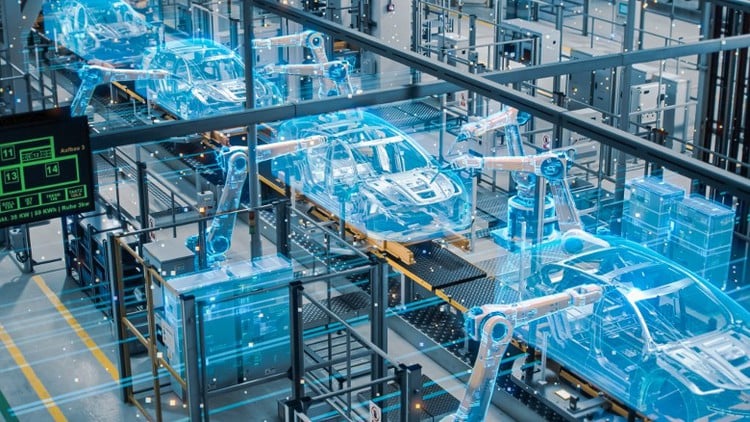The advent of automated inspection using AI has heralded a new era in quality assurance processes across industries. As technology advances, the integration of artificial intelligence into inspection systems is proving to be a game-changer. The use of AI not only streamlines the inspection process but also enhances the accuracy and efficiency of identifying defects and ensuring quality. This article delves into the myriad benefits and applications of automated inspection using AI and its impact on various sectors.

Understanding Automated Inspection Systems
Automated inspection systems employ a combination of computer vision, machine learning, and artificial intelligence to analyze products and components. These systems are designed to detect defects, deviations, and non-conformities at a speed and accuracy that surpasses human capabilities.
The Role of AI in Modern Inspection
AI plays a crucial role in modern inspection systems by offering machine learning algorithms that can adapt and improve over time. These algorithms learn from previous inspections to identify patterns and anomalies that may indicate defects. This continuous learning process ensures that the inspection system becomes more accurate and efficient with each use.
Benefits of Automated Inspection Using AI
The benefits of automated inspection using AI are manifold. Firstly, it significantly reduces the time required for inspections, allowing for faster turnaround times. Secondly, AI-driven systems can operate 24/7 without fatigue, ensuring consistent quality control. Moreover, the precision of AI algorithms minimizes the risk of human error, leading to higher quality products.
Cost Efficiency and Scalability
Implementing AI in inspection processes can result in substantial cost savings. By automating routine inspections, companies can allocate human resources to more complex tasks. Additionally, AI systems are easily scalable, allowing businesses to expand their operations without a corresponding increase in inspection costs.
Applications Across Industries
The applications of automated inspection using AI are diverse and span across multiple industries. In manufacturing, AI-driven inspection systems are used to ensure the quality of components and products. The automotive industry utilizes these systems for precision checks on parts and assemblies. In the food industry, AI helps in detecting contaminants and ensuring food safety.
Enhancing Quality in the Automotive Sector
In the automotive sector, quality is paramount. Automated inspection systems equipped with AI are used to scrutinize every component, from engine parts to electronic systems, ensuring they meet stringent quality standards. This not only enhances the reliability of vehicles but also boosts customer satisfaction.
Future Prospects of AI in Inspection
The future of automated inspection using AI looks promising as advancements in AI technologies continue to evolve. Innovations in deep learning and neural networks are expected to further enhance the capabilities of inspection systems. These technologies will enable even more accurate and faster defect detection, paving the way for new possibilities in quality control.
Integration with IoT and Industry 4.0
The integration of AI with the Internet of Things (IoT) and Industry 4.0 technologies is set to revolutionize inspection processes. Smart factories can leverage AI-driven inspection systems to achieve real-time quality monitoring and predictive maintenance, enhancing overall operational efficiency.
Challenges and Considerations
Despite its numerous advantages, the implementation of automated inspection using AI does pose certain challenges. One of the primary concerns is the initial cost of setting up AI-driven systems. Additionally, there is a need for skilled personnel to manage and maintain these systems.
Ensuring Data Privacy and Security
As AI systems handle vast amounts of data, ensuring data privacy and security is of utmost importance. Companies must implement robust cybersecurity measures to protect sensitive information and prevent data breaches.
Conclusion
Automated inspection using AI is transforming the landscape of quality control across industries. Its ability to enhance accuracy, efficiency, and cost-effectiveness makes it an invaluable tool for businesses striving for excellence. As technology continues to advance, AI-driven inspection systems will undoubtedly become an integral part of the quality assurance process, driving innovation and growth.

Frequently Asked Questions
What is automated inspection using AI?
Automated inspection using AI refers to the use of artificial intelligence and machine learning technologies to automate the inspection process, ensuring high accuracy and efficiency in detecting defects and ensuring product quality.
How does AI improve the inspection process?
AI improves the inspection process by using machine learning algorithms to analyze data, identify patterns, and detect anomalies quickly and accurately. This reduces human error, increases speed, and ensures consistent quality control.
What industries benefit from AI-driven inspection systems?
Industries such as manufacturing, automotive, and food benefit significantly from AI-driven inspection systems. These systems ensure high-quality standards, enhance safety, and improve overall operational efficiency.
For more information on AI-driven inspection solutions, check out AI quality inspection solutions and AI in manufacturing.
This article contains affiliate links. We may earn a commission at no extra cost to you.

